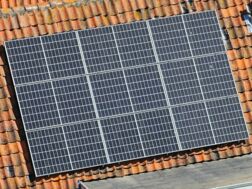The market price of gas continues to fall and is already 12 times cheaper than last summer, resulting in lower energy bills for consumers and businesses. The falling gas prices are due to sufficient gas reserves, a cooling of the European economy and the increase in solar and wind energy.
The market price for gas continues to fall sharply, and on Thursday, it recorded a cost of 25 euros per megawatt-hour, which is four times lower than at the beginning of the year and even 12 times lower than in August 2022. This sharp price drop is the biggest since the summer of 2021 and results from several factors.
One of the main reasons is the availability of gas. Last year, there were concerns that European countries would run out of Russian gas, resulting in massive purchases. However, a relatively mild winter ensured that gas storage remained well stocked and there is plenty of (liquefied) gas available.
In addition, the cooling of the European economy also plays a role. With declining industrial demand for gas, as in Germany, which is currently going through a recession, gas prices fall further.
Drop in transport costs lowers energy bills
Besides falling gas prices, the tariff for national gas transportation will also fall in 2024, which could further reduce energy bills. The Authority Consumer & Market (ACM) has determined that the tariffs that Gasunie Transport Services B.V. (GTS) is allowed to charge for the national transport of natural gas will fall by 20% on average in 2024. This would limit the impact of the tariff decrease on the total energy bill for consumers to less than 5%, as the costs for the national transport of gas are only a tiny part of the total energy bill. Tariffs are set annually by the ACM to ensure that they are not too high while at the same time guaranteeing network operators that (efficient) costs are reimbursed and that they achieve a market-based return on their investments.
European gas dependency diminishes
European dependence on Russian gas appears to be essentially over, thanks to better-filled than normal gas reserves for this time of year and increasing imports of liquefied natural gas (LNG). The gas price has already fallen by about 66% since the beginning of this year.
This price drop is also affecting households. Energy companies are starting to offer fixed contracts again, and energy tariffs are falling. Major energy suppliers such as Vattenfall, Eneco and Essent have already reduced their tariffs.
Outlook: Possible further decline and role of China
Gas prices are expected to remain low in the coming months. Some analysts even suggest that gas stocks could be fully replenished by August, well ahead of the heating season in autumn and winter. Moreover, there is speculation that gas prices could briefly turn negative this summer, mainly if a lot of power is generated from solar and wind energy and gas consumption remains limited. This could lead to producers paying to have gas taken away, which happened briefly in the UK in 2006.
In the medium term, however, gas prices are still expected to remain higher than before the energy crisis. For instance, the gas price in 2024 is around 48 euros per megawatt-hour. However, these higher prices may be influenced by factors such as economic growth in China. The degree of economic recovery and the resulting demand for LNG from China can influence global demand for natural gas and, thus, prices.





